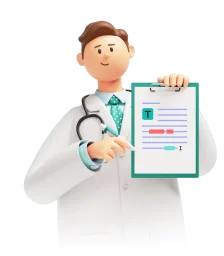Name
Capella University
PHI FPX 3200
Prof. Name
November, 2024
A Right to Experimental Drugs
Right to experimental drugs is one of the issues that touched a raw nerve among the supporters of the idea as well as the opponents. The reason for the argument to give patients a shot at surviving when there are no other possible ways is the hope that comes with these experimental treatments. Nonetheless, concerns regarding the safeness, efficacy, and sometimes even the morality of utilizing unvalidated interventions are not yet well-defined (Bunnik, 2019). As a result, the discussion of this topic implies the careful consideration of pluses and minuses of experimental drugs. The most vital for patients is the issue of informed consent, as the potentially beneficent treatments are high risk, and patients should be aware of all possible consequences. The Federal Drug Administration as an example needs to decide on whether treatments provided are safe for use and effective to support patient outcomes (FDA, 2019). Yet, critics argue that while extra precaution may reduce patient’s access to necessary drugs, advocates argue that the regulatory process is crucial for protecting patients. That is why the problem of the right to experimental drugs is very extensive and should be analyzed and discussed without confronting the ethical questions.
Ethical Theories and Moral Principles
The two main components of ethical theories and moral principles are very useful especially in the healthcare sector taking action against healthcare problems. There are several types of ethical theories commonly used in healthcare which include; Utilitarianism where actions are assessed on the impact they will have on everybody thereafter seeking to realize the best consequence for the majority of the people (Bunnik & Aarts, 2020). Tempered by Deontological ethic norms examines the actions based on the content of the principles or obligations disregarding the consequences. If action from virtue ethics is utilized, then the trait of character is determined concerning how closely the result from a decision falls in check with the particular virtuous character (FDA, 2019). Apart from these ethical theories, the following moral principles are some of the most used in healthcare. Patient self-governance is the ability of patients to have their say concerning their treatment. Beneficence is the legal and moral responsibility of healthcare givers to spare the interest of patients. Non-maleficence is the notion that physicians and sisters must ensure that an individual under their care does not experience harm. Justice implies legal distribution of healthcare resources and services (Nandifa et al., 2020).
Based on ethical theories and moral principles, such issues in health care as medical secrecy, conscientious consent, terminatory care, and drug trials should be solved. For example, regarding the use of prohibited, investigational medication on a patient, while utilitarian conveys the significance of the medication to the patient and the public, deontological may state the patient’s right against being given an unlawful drug regardless of the advantages that the medication has on the patient’s condition (Nandifa et al., 2020). By so doing, virtue ethics may take into consideration, the question of cultivating compassion and empathy towards the patient in the process of making a decision. In toto, a clinically and holistically sound and moral method of professional analysis demands the take-up and application of these ethical theories and moral principles above.
Principle of Informed Consent
Informed consent is particularly applicable to experimental drugs because they have not undergone the standardized approval process. A process of providing adequate information on the possibilities of covering adverse consequences and benefits that may be obtained from a particular medical treatment or research activity by the patient or a participant. Concerning the experimental drugs, the principle of informed consent is especially critical, given that the subjects agree to risk factors higher than the regular alternative therapy (Dankar et al., 2019).
A person receiving an experimental drug in a clinical trial must be aware of the nature of the drug, what it aims to do, and what possible negative consequences may ensue at any stage, including side effects. They have also to know about other treatments available and the possible consequences that may ensue when not agree to join the trial. Informed consent for experimental drugs must also guarantee the competency of a patient since the competency is a requirement to be fulfilled before a patient can be given information concerning the experimental drugs. Informed consent remains the cornerstone for participation in any clinical trial; participants have to be able to make an informed decision to participate in a trial and are equally free to withdraw from a trial at any given time (White, 2022). In sum, informed consent is a fundamental element of ethics in medical research, particularly concerning experimental drugs as it enables the participants to make an informed decision on whether or not to consent to the treatment since they have clear information about the dangers involved in the particular treatment ventured to be conducted on them.
Assumptions
Informed consent as a concept in experimental drug trials is premised on several assumptions (White, 2022). Others are patient self-determination, patient information, patient understanding, willingness to participate, and continued consent. It can guarantee that the patient receives proper regard for one person and also makes the right decision when it comes to his or her overall health.
Costs and Benefits of Unapproved Experimental Drugs
The question of whether or not experimental treatment should be prescribed to patients is topical, and a matter of controversy that comprises good points on the two sides. Those in favor of using unapproved drugs state that, it could help avail a possible line of treatment in patients with dire circumstances and it fosters the development of the sector and boosts knowledge for the doctors and the medical fraternity in general (White et al., 2022). Moreover, it can help patients receive treatment quicker, which is important for clients who cannot wait for approval of their application. However, there are following risks associated with supplying unapproved drugs. These drugs have not been through clinical trials and may have the potential hidden side effects that can be lethal. Furthermore, experimental drugs are still being administered and may not have been verified to work, so patients will pay lots of money for an experimental treatment that might not even help them. Further, concerns can arise from the ethical practice that tends to question the propensity of the treatment, the consequences for the patient’s self-encouraging treatment to continue with the treatment, and the consequence of the unapproved drugs. There is also legal risk implicated with healthcare providers, pharma product producers, and all associated with the distribution of unapproved pharma products.
Regarding this type of problem, numerous types of perspectives are not only diametrically opposite to each other. On one side of the argument people suggest that prescribing experimental drugs is the only way to give hope and a possible shot at life to a patient; on the other side are those who live by the principle that if it does not pass through clinical trial, it should not be used since it poses a danger to patients. Therefore, the rationale behind providing patients with unapproved drugs should be done in consultations with other medical practitioners about the patient’s status, the information available, and other recommendations given.
Pre-approved Drug Usage for a Wider Patient Pool
A topic of discussion is whether pre-approved drugs should be given to a larger patient base: The debate lies as follows. The proponents of this method have claimed that it will increase patient survival rates and save the lives of people. It is based on such evidence that they propose that if a medication has earlier been approved for one certain condition and recommended to be safe and effective, it may be beneficial to prescribe it to other patients, suffering from similar or related diseases (Nandifa et al., 2020). This could also increase the availability of treatment, it can also expand access for patients, which can lead to better health and possibly decrease the cost to the healthcare system. Nonetheless, people who are against this approach have fears that wereprescribing might be administered and cause unwanted harm to the patient. Some people say that it is possible to have a safe and effective medicine for one disease which is not good for other diseases and it should not be given to other patients, it has some consequences. Further, if doctors and nurses use too many of the drugs that pass through the rigorous process regulated by the current FDA, they would lose parts of patient care, which include the holistic part which includes other treatments and even changes in diet.
Thus, one can identify the possible effects of free distribution of a pre-approved drug to a massive population talking about the people’s health, expenditure, and the patients’ care quality (Quaranta et al., 2022). The last one that is very important is the ethical concern of this practice that is being practiced currently. In medical care, autonomy confers on the patient’s rights to make decisions for themselves, and the health care givers must honor the decisions the patient makes. However, there could be cases when offering pre-approved drugs to a set of patients can have adverse effects and might not be for the best of the many patients it seeks to serve; this will create an ethical dilemma (Borysowski, 2019). Thus, it is possible to state that the introduction of the principle of the pre-approval of drugs for a larger number of patients is possible and efficient only in consideration of the patient’s safety and well-being.
Knowledge Gaps and Missing Information
As mentioned earlier, there has been support and opposition to the idea of employing ‘compounded’ drugs. Nevertheless, the actual knowledge gaps and information gaps can be expanded on to enrich this concept. Firstly, more studies have to be conducted to establish whether it is safe to use the pre-approved drugs for ailments different from those in which they were first sanctioned. Secondly, in experimental data, one looks for results of the usage of a previously approved medicine in a vast population and its effects on the health and welfare of the people (Heydari et al., 2020). Thirdly, the wholly approved drugs for a broader population need to be discussed again, and this time on the ethical part that comes with it such as the Patient’s self-determination and consent, their doctor’s role, duty, and accountability in presenting all the latent facts to the patients. Fourth, many of these drugs which have been approved in pre-approval for many other diseases may have hidden positive side effects or high risks, unknown yet due to the necessity of further research to evaluate the wider effects of using such drugs. Last of all, further investigation is required to identify which group of patients may experience adverse effects from utilizing pre-approved drugs in nonapproved diseases (Dankar et al., 2019). In total, it is crucial to collect more information about trends and investigate the issue in more detail, and this should be done to quickly make decisions on the application of pre-approved drugs for a more extensive population.
PHI FPX 3200 Assessment 2 Conclusion
In conclusion, involving the right to experimental drugs, there is a clear need for more investigation of the ethical factors essential to this question. Informed consent is among the common ethical theories and moral principles that help dismantle contemporary problems in healthcare (FDA, 2019). It is with the same reasoning that while it may save the lives of numerous patients supplying unapproved experimental drugs to them has its risks and ethical dilemmas that need to be addressed. Finally, to prescribe non-recommended drugs is a decision concerning the relative benefits, as well as risks for patients, and it appears that regulatory agencies are major in evaluating the safety and efficacy of the interventions.
PHI FPX 3200 Assessment 2 References
Borysowski, J., & Górski, A. (2019). Compassionate use of unauthorized drugs: Legal regulations and ethical challenges. European Journal of Internal Medicine, 65, 12–16. https://doi.org/10.1016/j.ejim.2019.04.008
Bunnik, E. M., & Aarts, N. (2019). What do patients with unmet medical needs want? A qualitative study of patients’ views and experiences with expanded access to unapproved, investigational treatments in the Netherlands. BMC Medical Ethics, 20(1). https://doi.org/10.1186/s12910-019-0420-8
Dankar, F. K., Gergely, M., & Dankar, S. K. (2019). Informed consent in biomedical research. Computational and Structural Biotechnology Journal, 17, 463–474. https://doi.org/10.1016/j.csbj.2019.03.010
FDA. (2019). Drugs. Fda.gov. https://www.fda.gov/drugs
Heydari, M., Mehraeen, M., & Joulaei, H. (2020). Over medication and waste of resources in physicians’ prescriptions: A cross sectional study in southwestern Iran. Shiraz E-Medical Journal, 21(9). https://doi.org/10.5812/semj.97662
Nandifa, V. N. P., Jena, Y., & Joewana, S. (2020). Beneficence is the highest moral imperative of a doctor dealing with the poor quality of patient autonomy. Jurnal Pendidikan Kedokteran Indonesia: The Indonesian Journal of Medical Education, 9(1), 44. https://doi.org/10.22146/jpki.44511
Quaranta, A., D’Isidoro, O., Piattelli, A., Hui, W. L., & Perrotti, V. (2022). Illegal drugs and periodontal conditions. Periodontology 2000, 90(1), 62–87. https://doi.org/10.1111/prd.12450
White, C. M. (2022). Continued risk of dietary supplements adulterated with approved and unapproved drugs: Assessment of the US food and drug administration’s tainted supplements database 2007 through 2021. The Journal of Clinical Pharmacology, 62(8), 928–934. https://doi.org/10.1002/jcph.2046
Table of Contents
Toggle





